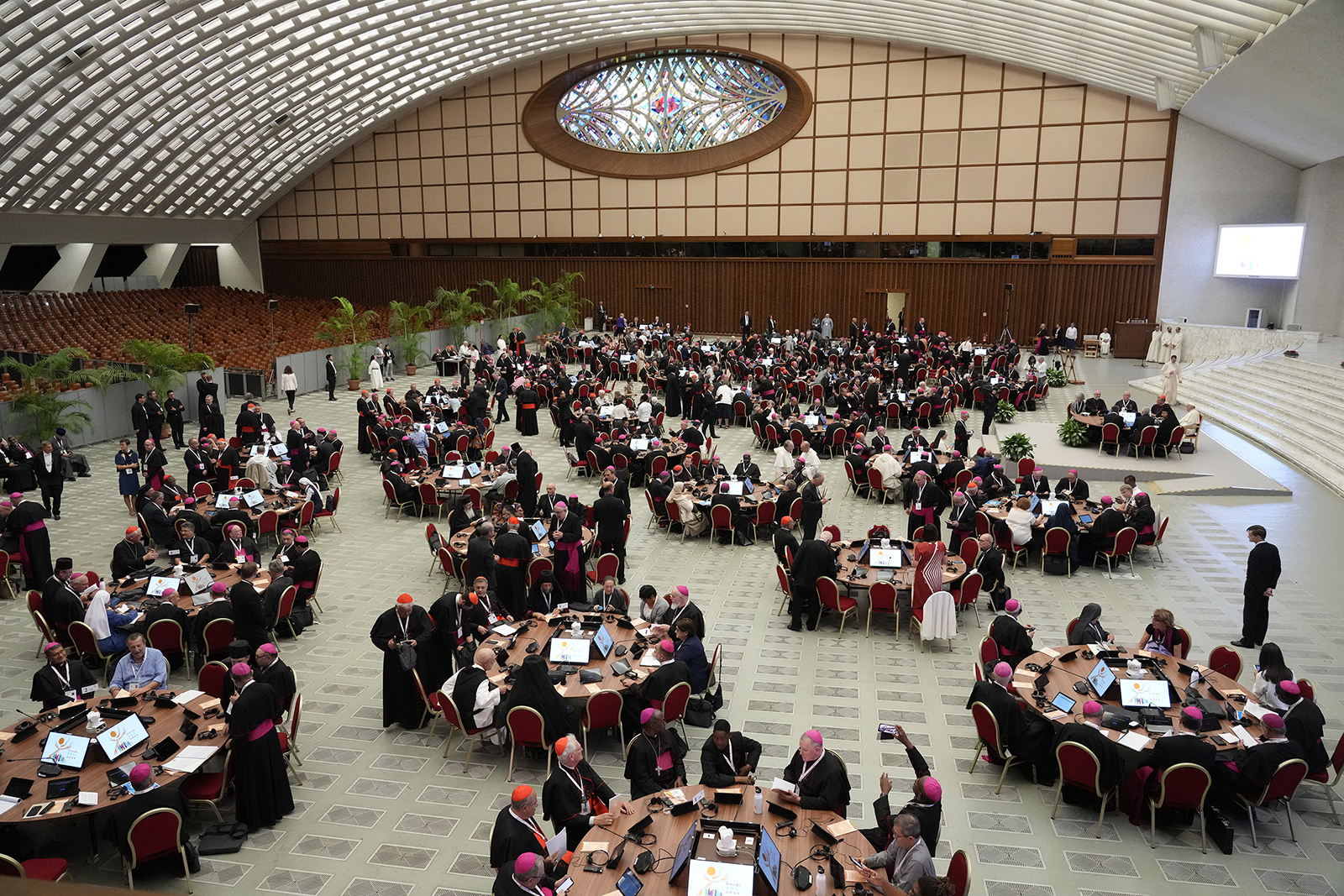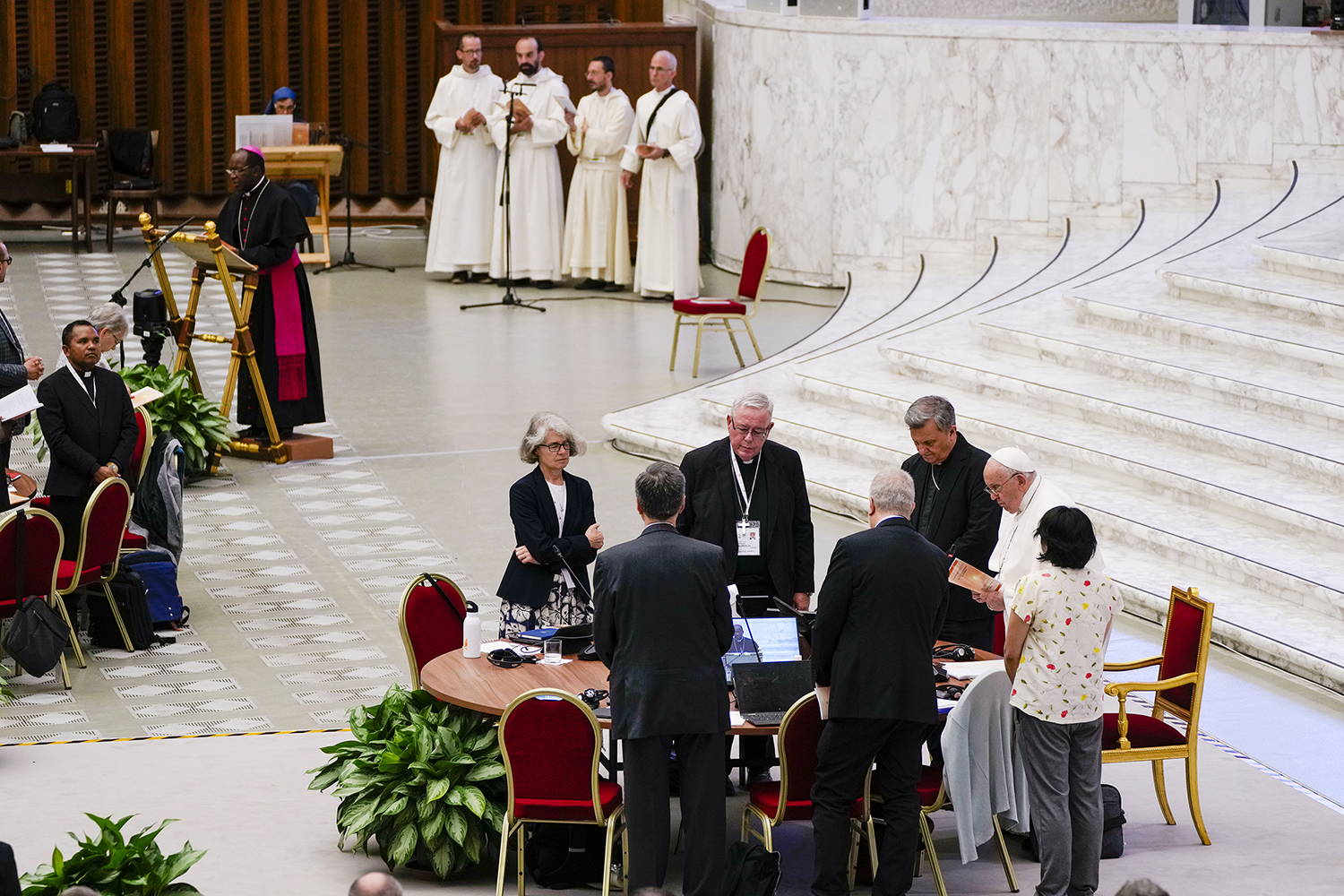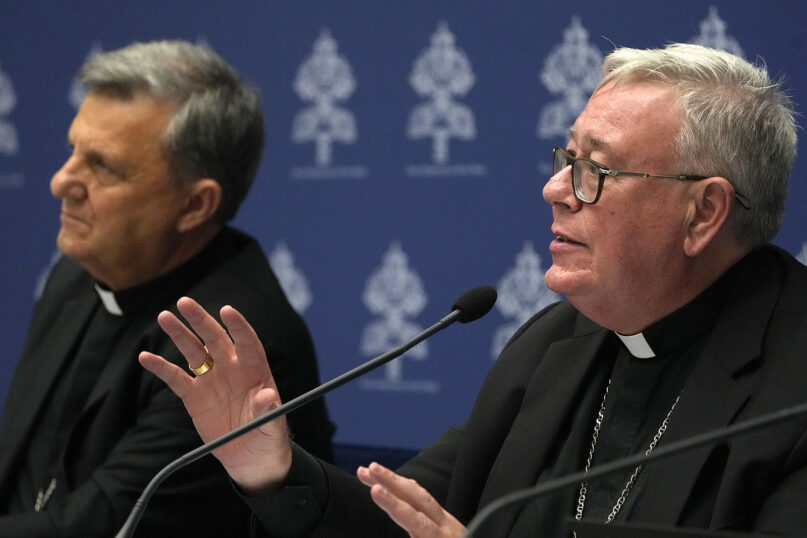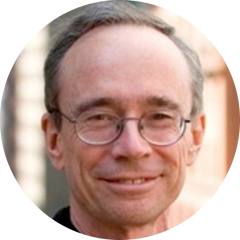VATICAN CITY (RNS) — Some conservative Catholic commentators believe the Synod on Synodality is being controlled by a cabal of liberal church officials and theologians. The silliness of this conspiracy theory can be seen by observing the gentle way in which Cardinal Jean-Claude Hollerich has been guiding the work of the synod as the papal-appointed “relator” or moderator for the synod.
Pope Francis called the synod to help overcome divisions in the church through prayer, conversation and discernment. The first session of the synod is taking place this October. A second session will occur in October 2024.
Hollerich is the 65-year-old archbishop of Luxembourg, whom one observer described as a big teddy bear. Before being appointed archbishop by Pope Benedict XVI in 2011, he was a Jesuit missionary in Japan. As relator, he urges the members of the synod to embrace the process. He raises questions but never imposes answers.
In welcoming the synodal members to their meeting place, he noted, “We are not sitting in hierarchical order but at round tables, which is a way to foster genuine sharing and authentic discernment.” This, he said, “mirrors the experience of the people of God along the synodal path that started in 2021.”
This synod, which includes lay men and women, is strikingly different from previous synods that only included bishops.
“None of us is a star in this synod,” Hollerich said. Rather the Holy Spirit is the protagonist of the synod. “Only with a heart fully open to the Spirit’s guidance will we be able to respond to the call we have received as synod members.”
The cardinal described the church as “the people of God, walking through history, with Christ in her midst,” which does not exclude disagreements in this crowd.
“It is only normal that there is a group walking at his right, another at his left, while some run ahead and others lag behind,” explains Hollerich. “When each of these groups looks at Christ our Lord, together with him they cannot help but see the group that is doing the opposite: those walking on the right will see those walking on the left, those running ahead will see those lagging behind. In other words, the so-called progressive cannot look at Christ without seeing the so-called conservatives with him and vice versa. Nevertheless, the important thing is not the group to which we seem to belong but walking with Christ within his Church.”
Hollerich stressed the importance of small-group discussions in the synodal process. Conversation in the Spirit “allows the expression of everyone’s point of view, enhancing consonances without neglecting differences, but above all discouraging polarizations and polemics.”
It “aims to build consensus without dividing into factions or crushing into uniformity.”
At the synod, there should not be “a battle between position A and B,” Hollerich told the members. “Through genuine discernment, the Holy Spirit opens our minds and our hearts to new positions, leaving A and B behind!”
Hollerich is responsible for introducing each of the four modules or topics listed in the Instrumentum Laboris, or working paper, for discussion in small groups.

Pope Francis, sitting at right, participates in the opening session of the 16th General Assembly of the Synod of Bishops in the Paul VI Hall at the Vatican, Wednesday, Oct. 4, 2023. Much of the meeting takes place in small-group discussions at round tables where bishops and laymen and women exchange views. (AP Photo/Gregorio Borgia)
The conversations in the small groups begin with each person having four minutes to communicate what is most important to him or her. The small groups then continue their conversation and discernment.
Eventually, each group drafts a two-page report on each module indicating points of convergence and divergence, tensions that have emerged and questions that remain open. The first draft of each report is presented to the full assembly, and then each group finalizes its report after hearing what was said in the assembly.
These small-group reports will then be used in drawing up a report for the full synod.
For the first module, Hollerich recommended the small groups reconnect with the experience of the “journeying together” of the people of God over the past two years of preparatory discussions as they occurred in their parishes, dioceses and countries. “Each of us is invited to choose what seems most important and most meaningful, what they feel emerges most strongly from their memory,” he said.
“Our reflection should not take the form of a theological or sociological treatise,” explained the cardinal. “We need to start from concrete experiences, our own personal one and above all the collective experience of the people of God that has spoken through the listening phase.”
Listening during these conversations in the Spirit “builds communion and brings missionary dynamism,” according to Hollerich.
In introducing the second module on “communion,” he suggested the members “focus first on the title ‘A communion that radiates.’” Even more, he said, is the question that immediately follows: “How can we be more fully a sign and instrument of union with God and of the unity of all humanity?”
He noted, “In deep communion with his Father through the Holy Spirit, Jesus extended this communion to all the sinners. Are we ready to do the same? Are we ready to do this with groups which might irritate us because their way of being might seem to threaten our identity?”
Each of the modules has five worksheets to stimulate conversation, and each of the 35 small groups discussed one of the worksheets. Some critics complained that this kept the members from discussing all the topics, but the members had been polled on their preferences and most were in the small group assigned the worksheet they requested. In addition, during the general congregations or plenary meetings of the synod, time was provided for individual interventions on any topic.
Hollerich began his introduction to the third module on “Co-responsibility in Mission” by reminding the synod: “We are part of the same Church, and we share the same mission: to announce to the world the Good News of the Gospel, the love and mercy of God toward all humanity and indeed all creation.”
The question asked of the synod in this module is: “How can we better share gifts and tasks in the service of the Gospel?”

From left foreground front to camera, Sister Nathalie Becquart, Synod of Bishops Rapporteur Cardinal Jean-Claude Hollerich, Synod of Bishops Secretary General Cardinal Mario Grech, attend with Pope Francis a session of the 16th general assembly of the synod of bishops in the Paul VI Hall at The Vatican, Monday, Oct. 16, 2023. (AP Photo/Domenico Stinellis)
Hollerich spoke of how communion (the topic of the second module) and mission (third module) are interrelated. “Communion is not closed in on itself but is impelled toward mission; at the same time, the purpose of mission is precisely to extend the scope of communion, enabling more and more people to meet the Lord and accept his call to be part of his people.”
The mission of the church is to proclaim the Gospel, said Hollerich, which includes “the commitment to integral ecology, the struggle for justice and peace, the preferential option for the poor and the peripheries, and the willingness to be open to encounter with all.”
This module also raised the question, “How can we ensure that women feel they are an integral part of this missionary Church?”
The fourth module dealt with “Participation, governance and authority. What processes, structures and institutions are there in a missionary synodal Church?”
“Missionary discipleship and co-responsibility are not just catchphrases,” asserted Hollerich, “but a call that we can only realize together, with the support of concrete processes, structures and institutions that truly work in the spirit of synodality.” This can impact the life of the church at every level.
Hollerich noted here the dangers of clericalism. “Where clericalism reigns, there is a Church that does not move, a Church without mission,” he said. “Clericals only want to maintain the ‘status quo,’ because only the ‘status quo’ cements their power. Mission then is impossible!”
Rather the challenge is to bring synodality through conversations in the Spirit and discernment to local church structures.
As a member of the committee drafting the final report, Hollerich will certainly have influence, but this report will have to be reviewed and approved by the full synod. It is unlikely that this report will make final recommendations on controversial items. Rather it will set the stage for further discussion in the local churches.
Hollerich’s hope is that the synod “can develop a road map for the following year” of worldwide consultation before the next session of the synod in October 2024. “Ideally this road map should indicate where we feel consensus has been reached among us and above all within the people of God, laying down possible steps to undertake as a response to the voice of the Spirit. But it should also say where deeper reflection is needed and what could help that process of reflection.”
It is difficult to understand how the critics of the synodal process can see in Hollerich a Machiavellian figure trying to control the synod. The process allows many opportunities for members to speak and express their views. As moderator of the synod, he has been very moderate.






